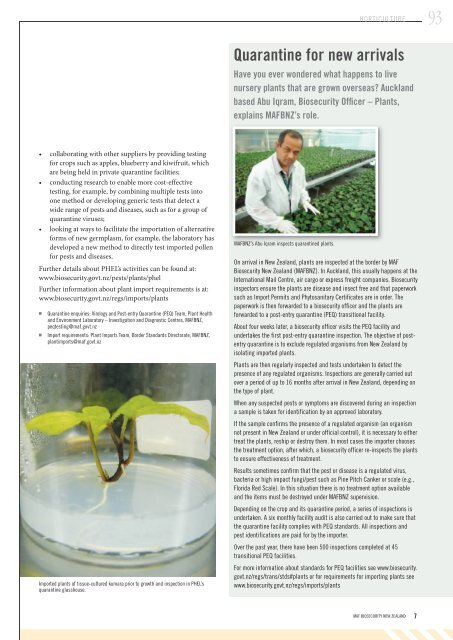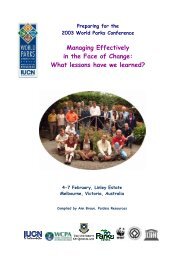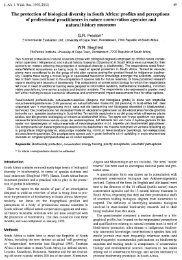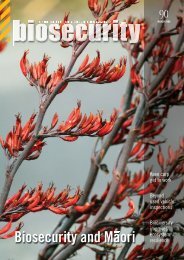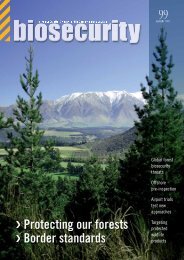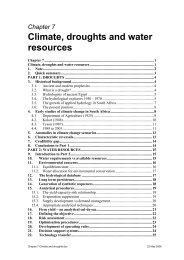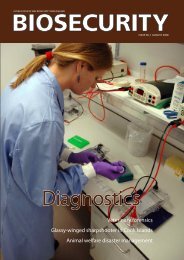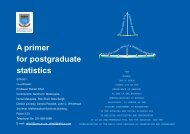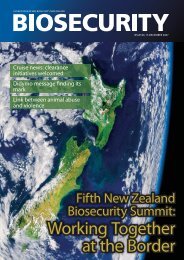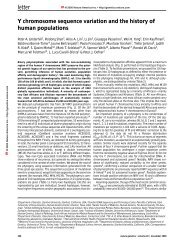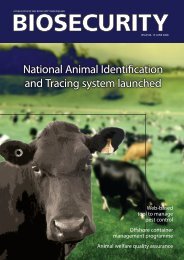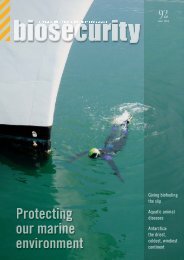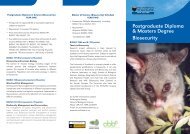AVOCADOS - Biosecurity New Zealand
AVOCADOS - Biosecurity New Zealand
AVOCADOS - Biosecurity New Zealand
You also want an ePaper? Increase the reach of your titles
YUMPU automatically turns print PDFs into web optimized ePapers that Google loves.
HORTICULTURE93Quarantine for new arrivalsHave you ever wondered what happens to livenursery plants that are grown overseas? Aucklandbased Abu Iqram, <strong>Biosecurity</strong> Officer – Plants,explains MAFBNZ’s role.• collaborating with other suppliers by providing testingfor crops such as apples, blueberry and kiwifruit, whichare being held in private quarantine facilities;• conducting research to enable more cost-effectivetesting, for example, by combining multiple tests intoone method or developing generic tests that detect awide range of pests and diseases, such as for a group ofquarantine viruses;• looking at ways to facilitate the importation of alternativeforms of new germplasm, for example, the laboratory hasdeveloped a new method to directly test imported pollenfor pests and diseases.Further details about PHEL’s activities can be found at:www.biosecurity.govt.nz/pests/plants/phelFurther information about plant import requirements is at:www.biosecurity.govt.nz/regs/imports/plants■■Quarantine enquiries: Virology and Post-entry Quarantine (PEQ) Team, Plant Healthand Environment Laboratory – Investigation and Diagnostic Centres, MAFBNZ,peqtesting@maf.govt.nzImport requirements: Plant Imports Team, Border Standards Directorate, MAFBNZ,plantimports@maf.govt.nzImported plants of tissue-cultured kumara prior to growth and inspection in PHEL’squarantine glasshouse.MAFBNZ’s Abu Iqram inspects quarantined plants.On arrival in <strong>New</strong> <strong>Zealand</strong>, plants are inspected at the border by MAF<strong>Biosecurity</strong> <strong>New</strong> <strong>Zealand</strong> (MAFBNZ). In Auckland, this usually happens at theInternational Mail Centre, air cargo or express freight companies. <strong>Biosecurity</strong>inspectors ensure the plants are disease and insect free and that paperworksuch as Import Permits and Phytosanitary Certificates are in order. Thepaperwork is then forwarded to a biosecurity officer and the plants areforwarded to a post-entry quarantine (PEQ) transitional facility.About four weeks later, a biosecurity officer visits the PEQ facility andundertakes the first post-entry quarantine inspection. The objective of postentryquarantine is to exclude regulated organisms from <strong>New</strong> <strong>Zealand</strong> byisolating imported plants.Plants are then regularly inspected and tests undertaken to detect thepresence of any regulated organisms. Inspections are generally carried outover a period of up to 16 months after arrival in <strong>New</strong> <strong>Zealand</strong>, depending onthe type of plant.When any suspected pests or symptoms are discovered during an inspectiona sample is taken for identification by an approved laboratory.If the sample confirms the presence of a regulated organism (an organismnot present in <strong>New</strong> <strong>Zealand</strong> or under official control), it is necessary to eithertreat the plants, reship or destroy them. In most cases the importer choosesthe treatment option, after which, a biosecurity officer re-inspects the plantsto ensure effectiveness of treatment.Results sometimes confirm that the pest or disease is a regulated virus,bacteria or high impact fungi/pest such as Pine Pitch Canker or scale (e.g.,Florida Red Scale). In this situation there is no treatment option availableand the items must be destroyed under MAFBNZ supervision.Depending on the crop and its quarantine period, a series of inspections isundertaken. A six monthly facility audit is also carried out to make sure thatthe quarantine facility complies with PEQ standards. All inspections andpest identifications are paid for by the importer.Over the past year, there have been 500 inspections completed at 45transitional PEQ facilities.For more information about standards for PEQ facilities see www.biosecurity.govt.nz/regs/trans/stds#plants or for requirements for importing plants seewww.biosecurity.govt.nz/regs/imports/plantsMAF BIOSECURITY NEW ZEALAND 7


